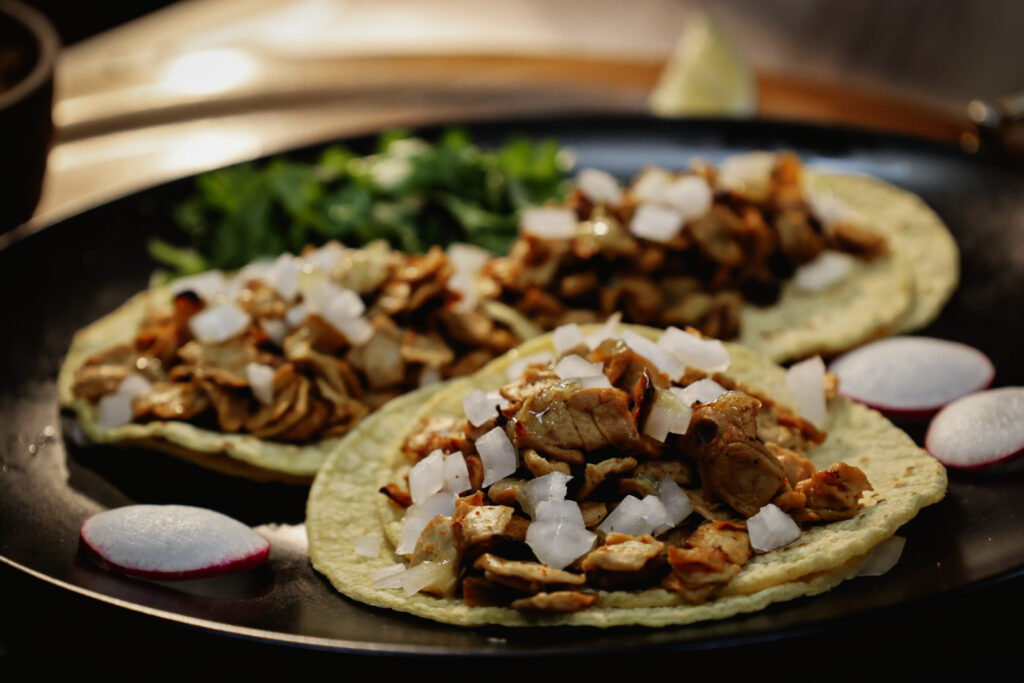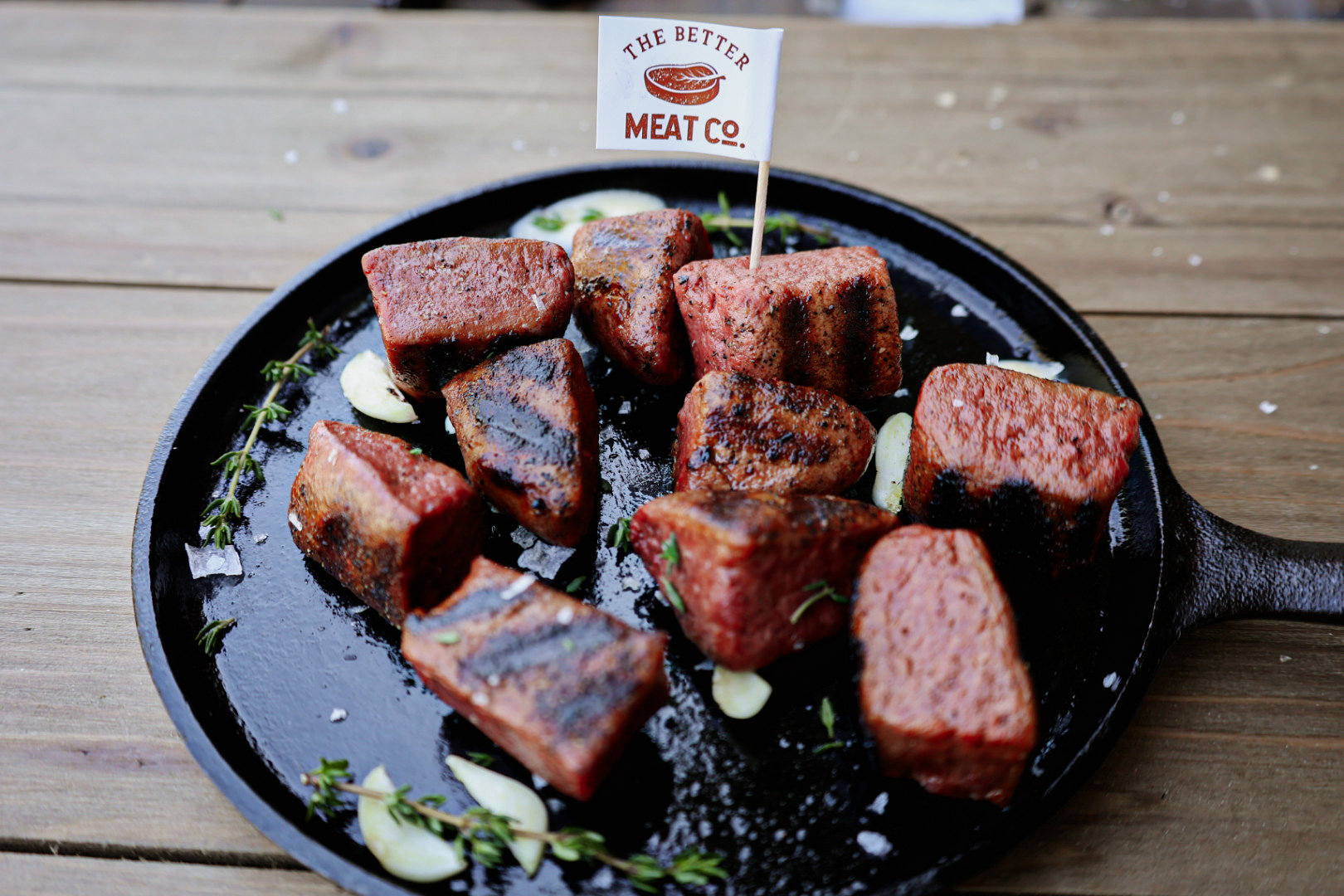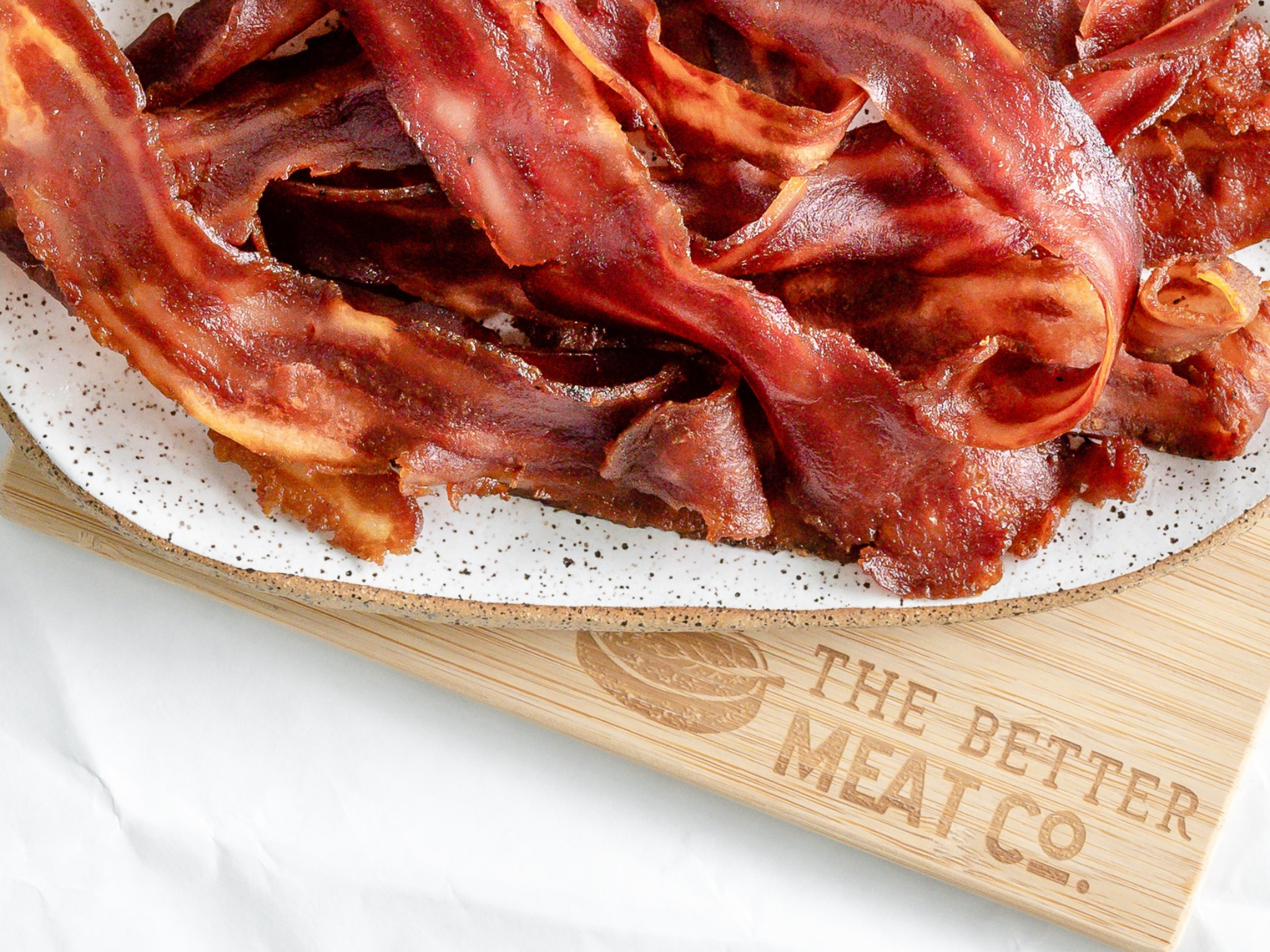The Better Meat Co Takes Its Mycoprotein to Asia with Singapore Regulatory Approval
4 Mins Read
Californian startup The Better Meat Co has received regulatory approval for its Rhiza mycoprotein ingredient in Singapore, paving the way for its international debut.
The Better Meat Co is now cleared to sell its Rhiza mycoprotein in Singapore, allowing companies to use the ingredient in meat analogues, as well as an “enhancer” in dairy products and blended meat applications.
The fungi strain covered by the Singapore Food Agency’s (SFA) approval, Neurospora crassa, has a long history of consumption in Asian food, from a base for oncom – a fermented Indonesian staple made from byproducts like soy pulp (or okara) – to fermented okara in China’s Gannan district.
It comes three months after the US Food and Drug Administration granted a ‘no questions’ letter to The Better Meat Co, in response to its notification to the agency that its mycoprotein falls under the Generally Recognized as Safe (GRAS) label.
Now, the SFA’s go-ahead opens up The Better Meat Co’s market outside the US for the first time, heading to a country known for its penchant for future foods.
Shelf-stable Rhiza mycoprotein can be used in blended meat

Rhiza is described as a whole-biomass ingredient, rather than a protein isolate, made from the filamentous root-like structure of the fungi. Aside from Neurospora crassa, The Better Meat Co actually has three other US patents for other Neurospora species for use as a shelf-stable food ingredient.
The mycoprotein contains all essential amino acids and has a protein content of 50% by dry weight, which is higher than eggs. It also has a protein digestibility score of 0.87-0.96 (close to casein, beef and eggs). Plus, it has more fibre than oats and more potassium than bananas, while containing no cholesterol and “virtually no saturated fat”.
Aside from being a climate-friendly form of protein – unlike conventional meat – it has functional benefits that make meat blended with Rhiza have superior yields and an improved texture after being cooked.
The ingredient has featured in products spanning steaks, foie gras, carne asada, tacos, chicken cutlets, bacon, tuna, deli slices, sausage, jerky, and more. “It’s far more meat-like in its texture than TVP, and is a whole food that can act as a single ingredient product on its own (with seasoning added),” founder and CEO Paul Shapiro told Green Queen.
“The Better Meat Co sells our mycoprotein B2B, and in a shelf-stable granule format. There’s no cold chain needed,” he explained. “The buyer (a food company) simply hydrates it and then either uses it as a single-ingredient animal-free meat, or adds it as an ingredient into its formulation.”
He added: “Rhiza can be used both to make animal-free meat and as an enhancer to hybridise animal meat. It is the only mycoprotein in the world recognised by USDA as safe and suitable for inclusion in animal meat.”
Rapid progress for The Better Meat Co

The Singapore approval is a feather in the startup’s cap after a tough couple of years. Until this summer, it had been embroiled in a bitter IP battle with fellow mycelium producer Meati since late 2021. The Better Meat Co had sued Meati – one of the best-financed alternative protein companies – for undermining its IP and attempting to “bully” a less-funded rival.
Meati, which also employs submerged fermentation tech, responded by accusing the former of stealing its IP. But a judge in California ruled largely in The Better Meat Co’s favour in June, with both sides agreeing to end the dispute.
Since then, The Better Meat Co has received its FDA letter in the US, obtained a $1.5M government grant to build a factory, and slashed mycoprotein production costs by 30%, matching the price of commodity beef when manufactured at scale. In the six years since it was established, the startup has raised $27M, but it is currently not fundraising.
“As demand for Rhiza mycoprotein far outweighs supply right now, our major focus is on scaling to be able to produce more of this important ingredient for food producers,” Shapiro said.
The startup has already signed multiple letters of intent and offtake agreements with major consumer brands in both the US and Asia, and has been working with meat industry giants Hormel Foods and Maple Leaf Foods to develop meat analogues.
“Whether as the star ingredient in animal-free meats or as a highly functional meat enhancer, Rhiza mycoprotein is the perfect fit for food companies seeking to make better meat,” Shapiro stated. “We’re looking forward to Singaporeans getting a chance to enjoy a taste of the future of food – now.”
The company will join a nascent mycelium space in Singapore. Quorn, a brand synonymous with mycoprotein (which is derived from mycelium), has been operating in the island nation since 2017, while Dutch startup The Protein Brewery received the SFA greenlight for its mycelium ingredient Fermotein earlier this year.
Locally, 70/30 Food Tech has launched a research lab to develop mycelium protein products, and Mycovation‘s MyX line of mycelium products can be used in meat analogues, baked goods, functional foods and beverages, and extruded snacks.



